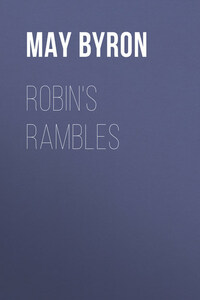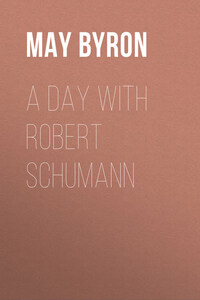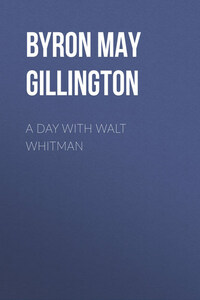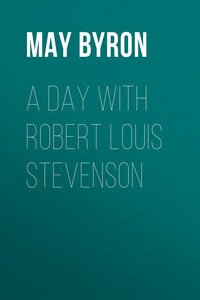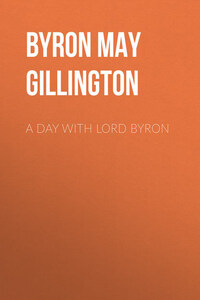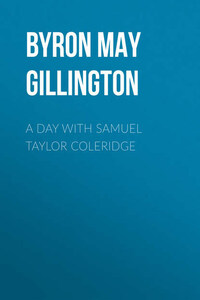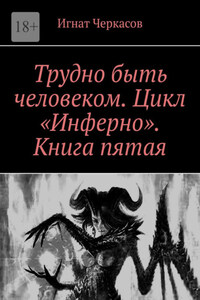About four o'clock on a September morning of 1665, – when the sun was not yet shining upon his windows facing the Artillery Fields, and the autumnal dew lay wet upon his garden leaves, – John Milton awoke with his customary punctuality, and, true to his austere and abstemious mode of life, wasted no time over comfortable indolence. He rose and proceeded to dress, with the help of his manservant Greene. For, although he was but fifty-four years in age, his hands were partly crippled with gout and chalkstones, and his eyes, clear, bright and blue as they had always been to outward seeming, were both stone-blind.
Milton still retained much of that personal comeliness which had won him, at Cambridge, the nickname of "Lady of Christ's College." His original red and white had now become a uniform pallor; his thick, light brown hair, parted at the top, and curling richly on his shoulders – (no close-cropt Roundhead this!) – was beginning to fade towards grey. But his features were noble and symmetrical; he was well-built and well-proportioned; and he was justified in priding himself upon a personal appearance which he had never neglected or despised. In his own words, he was "neither large nor small: at no time had he been considered ugly; and in youth, with a sword by his side, he had never feared the bravest."
Such was the man who now, neatly dressed in black, was led into his study, upon the same floor as his bedroom, – a small chamber hung with rusty green, – and there, seated in a large old elbow-chair, received the morning salutations of his three daughters.
One after another they entered the room, and each bestowed a characteristic greeting upon her father. Anne, the eldest, a handsome girl of twenty, was lame, and had a slight impediment in her speech. She bade him good-morning with a stammering carelessness, enquired casually as to his night's rest, and stared out of window, palpably bored at the commencement of another monotonous, irksome day. Mary, the second, – dark, impetuous, and impatient, – was in a state of smouldering rebellion. She addressed him in a tone of almost insolent mock-civility, – he must needs have been deaf as well as blind not to detect the unfilial dislike beneath her words. Ten-year-old Deborah, the most affectionate of the three, ventured to kiss her father, even to stroke his long, beautiful hair, and to re-tie the tassels of his collar.
"Mary will read to me this morning," said Milton, gravely inclining his head in acknowledgment of Deborah's attentions. The dark girl, with a mutinous shrug of her shoulders, sat down and began to read aloud, in a hard, uninterested voice, out of the great leather-bound Hebrew Old Testament which lay upon the table. And not one single sentence did she understand – not one word of what she was reading.
John Milton's theories of education, which he had expounded at length in pamphlets, were a curious blend of the practical and the ideal. Vastly in advance of his time in his demand for a practical training, he had evolved that "fine definition which has never been improved upon," – "I call a complete and generous education that which fits a man to perform, justly, skilfully and magnanimously, all the offices, both private and public, of peace and war." But he made no allowances for slowness or stupidity: all his schemes were based upon the existence of scholars equally gifted with himself. And he entirely left out of all calculations, much as a Mahommedan might, that complex organism the female mind. He wished it, one must conjecture, to remain a blank. So his daughters had received no systematic schooling, only some sort of home-instruction from a governess. And he had himself trained them to read aloud in five or six languages, – French, Italian, Latin, Greek, Hebrew and even Syriac, – in total ignorance of the meaning. "One tongue," observed Milton brusquely, almost brutally, "is enough for any woman."
Mary read on, steadily, stolidly, sullenly, for a full hour. The others had left the room and were busy upon household tasks. At the conclusion of two chapters, "Leave me," commanded Milton, "I would be alone now for contemplation," – and Mary willingly escaped to breakfast.
The great poet reclined in his chair, – wrapt in such solemn and melancholy meditation as might have served as the model for his own Penseroso. A severe composure suffused his fine features, a serious sadness looked out of his unclouded eyes; his entire expression was "that of English intrepidity mixed with unutterable sorrow." For Milton was a bitterly disappointed man.
It was not merely his comparative poverty, – because the Restoration, besides depriving him of his post as Latin or Foreign Secretary to the Commonwealth Council of State, had reduced his means from various sources almost to vanishing point.
Nor was his melancholy mainly the result of his affliction; that he had deliberately incurred, and was as deliberately enduring. Constant headaches, late study, and perpetual recourse to one nostrum after another, had eventuated in the certainty of total blindness if he persisted in his mode of work.

